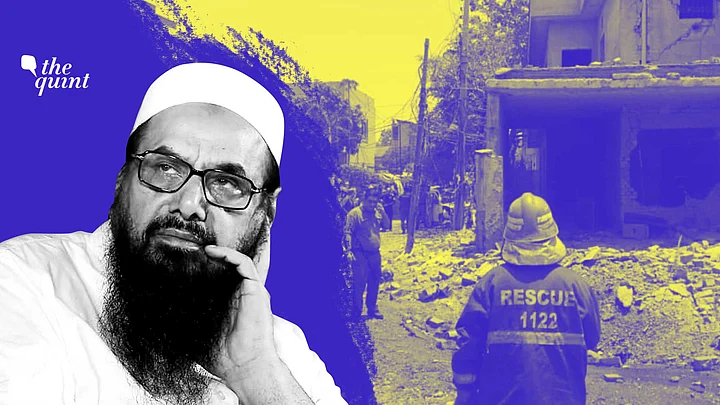Four days after Pakistan alleged that last month’s explosion near Jamaat-ud-Dawa leader Hafiz Saeed's residence, which killed three people, was 'Indian State-sponsored terrorism', Ministry of External Affairs spokesperson Arindam Bagchi termed the allegation as ‘baseless propaganda.’
Pakistan had alleged that the explosion was orchestrated by an Indian citizen who has associations with the Research and Analysis Wing (R&AW).
While addressing a media briefing on 8 July, Bagchi said, “It is not new for Pakistan to engage in baseless propaganda against India. Pakistan would do well to expend the same effort in setting its own house in order and taking credible and verifiable action against terrorism emanating from its soil and terrorists who have found safe sanctuaries there.”
Pakistan's Allegation
Pakistan's National Security Advisor Moeed Yusuf, while speaking at a press conference in Islamabad, had said:
“We have concrete evidence and intelligence, including financial and telephone records, that point to direct Indian sponsorship of these terrorists.”
The blast in Lahore's Johar Town left three dead and 24 injured. "I want to make sure that our message is heard very clearly about this particular incident on the 23 June in Lahore," he added.
Meanwhile, Pakistan's Prime Minister Imran Khan reiterated the allegation on Twitter, saying that "planning and financing of this heinous terror attack has links to Indian sponsorship of terrorism against Pakistan" and urged the international community to mobilise against this "rogue behaviour".
Pakistan Continues To Glorify Terrorists: MEA
MEA spokesperson Bagchi asserted, “The international community is well aware of Pakistan’s credentials when it comes to terrorism. This is acknowledged by none other than its own leadership, which continues to glorify terrorists like Osama bin Laden as ‘martyrs’.”
The explosion came a day before National Security Advisor (NSA) Ajit Doval and his Pakistan counterpart Moeed Yusuf joined NSAs of the Shanghai Cooperation Organisation (SCO) member countries in Dushanbe, Tajikistan, on 24 June, agreeing to cooperate in the fight against “international terrorism”, “extremism”, “separatism”, and “religious radicalism”.
India-Pakistan have been holding back-channel talks for the last few months, with Doval holding dialogues with the Pakistan’s civilian-military leadership.
The two sides had agreed to adhere to the ceasefire pact in February, along the border and LoC, which has now held for over four months.
(At The Quint, we question everything. Play an active role in shaping our journalism by becoming a member today.)
